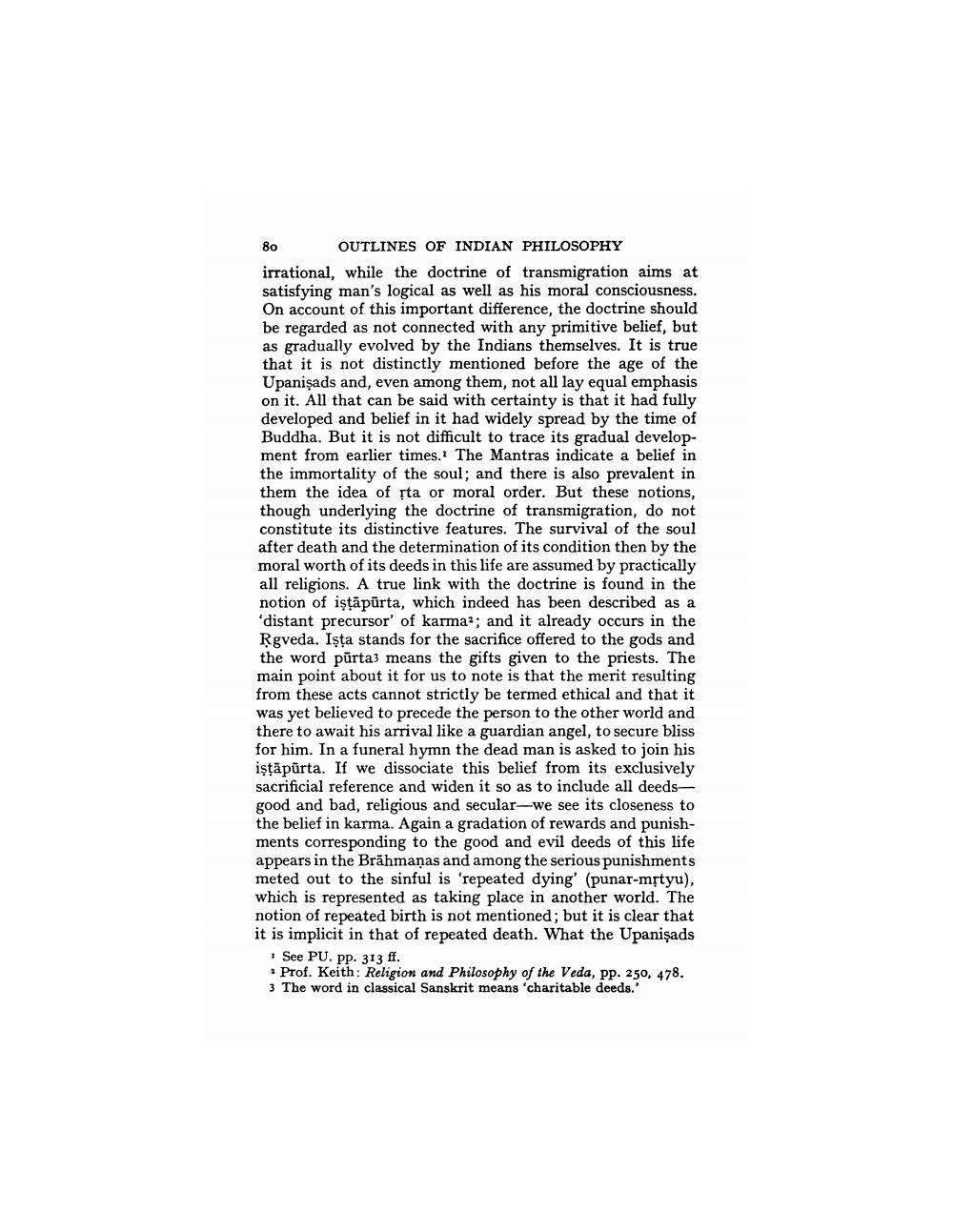________________
80 OUTLINES OF INDIAN PHILOSOPHY irrational, while the doctrine of transmigration aims at satisfying man's logical as well as his moral consciousness. On account of this important difference, the doctrine should be regarded as not connected with any primitive belief, but as gradually evolved by the Indians themselves. It is true that it is not distinctly mentioned before the age of the Upanişads and, even among them, not all lay equal emphasis on it. All that can be said with certainty is that it had fully developed and belief in it had widely spread by the time of Buddha. But it is not difficult to trace its gradual development from earlier times. The Mantras indicate a belief in the immortality of the soul; and there is also prevalent in them the idea of sta or moral order. But these notions, though underlying the doctrine of transmigration, do not constitute its distinctive features. The survival of the soul after death and the determination of its condition then by the moral worth of its deeds in this life are assumed by practically all religions. A true link with the doctrine is found in the notion of iştāpūrta, which indeed has been described as a 'distant precursor' of karma?; and it already occurs in the Rgveda. Ista stands for the sacrifice offered to the gods and the word purta3 means the gifts given to the priests. The main point about it for us to note is that the merit resulting from these acts cannot strictly be termed ethical and that it was yet believed to precede the person to the other world and there to await his arrival like a guardian angel, to secure bliss for him. In a funeral hymn the dead man is asked to join his iştāpürta. If we dissociate this belief from its exclusively sacrificial reference and widen it so as to include all deedsgood and bad, religious and secular-we see its closeness to the belief in karma. Again a gradation of rewards and punishments corresponding to the good and evil deeds of this life appears in the Brāhmaṇas and among the serious punishments meted out to the sinful is 'repeated dying' (punar-mptyu), which is represented as taking place in another world. The notion of repeated birth is not mentioned; but it is clear that it is implicit in that of repeated death. What the Upanişads
See PU. pp313 ff. * Prof. Keith: Religion and Philosophy of the Veda, pp. 250, 478. 3 The word in classical Sanskrit means 'charitable deeds.'




